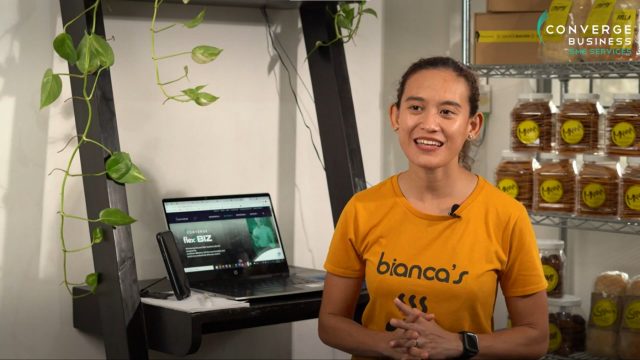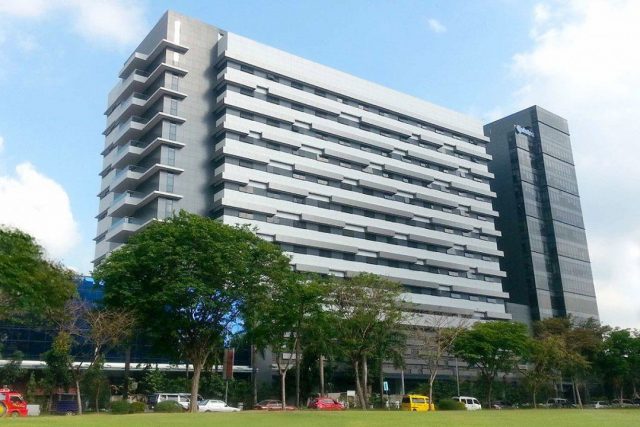By Kyle Aristophere T. Atienza, Reporter
ELBERT JOHN HONORICA, 25, says he knows better than to vote for a presidential candidate who comes from a political dynasty, a main feature of Philippine politics.
“An alliance like that of the Marcoses, Dutertes and Arroyos is not unprecedented,” the millennial activist said in a Facebook Messenger chat. “The triple-threat alliance is simply shameless and shows their obvious thirst for power.
“In the Philippines, multiple parties compete in a political climate focused on personalities and dominated by powerful dynasties. President Rodrigo R. Duterte’s predecessor, the late Benigno S.C. Aquino III, was the son of former President Corazon C. Aquino, whose People Power Revolution ended the dictator’s more than 20-year rule.
 More than 70,000 people were jailed, about 34,000 were tortured and more than 3,000 people died under the dictator’s martial rule, according to Amnesty International. The government has recovered P174 billion of the family’s ill-gotten assets, the Presidential Commission on Good Government has said.
More than 70,000 people were jailed, about 34,000 were tortured and more than 3,000 people died under the dictator’s martial rule, according to Amnesty International. The government has recovered P174 billion of the family’s ill-gotten assets, the Presidential Commission on Good Government has said.
The Dutertes also have their own brand of dynastic politics, having ruled Davao City in southern Philippines for decades. Mr. Duterte was a former mayor, while his daughter Sara Duterte-Carpio is the city’s chief now. Both her brothers are also into local politics.
Ms. Duterte-Carpio registered her candidacy for vice-president this month under the political party of ex-President Gloria Macapagal-Arroyo, a known powerbroker in Philippine politics.
The presidential daughter will run in tandem with the late dictator’s son Ferdinand “Bongbong” R. Marcos, Jr., who filed his candidacy for president in October.
“A Marcos-Duterte-Arroyo alliance will irreparably entrench dynastic rule in the country,” said Temmario C. Rivera, chairman of the Center for People Empowerment in Governance.
“While seething with its own internal rivalries and distrust of each other, even their temporary, opportunistic alliances will make it very difficult to mount political challenges against them,” he said in a Messenger chat.
Julio C. Teehankee, a political science professor at De La Salle University, said the alliance of powerful families would mark the peak of dynastic politics in the country, which seems to be aimed at protecting them from lawsuits and political persecution.
“Arroyo has been brokering the Marcos-Sara alliance,” he said in a Messenger chat. “The former queen has become the kingmaker. Even the best laid plan of mice and men can be countered by an equally crafty politician in the person of President Duterte.”
“That will serve as each family’s political protection — a dynastic consolidation for political survival,” he added.
The International Criminal Court (ICC) has ordered an investigation of Mr. Duterte’s crackdown on illegal drugs that has killed thousands, saying crimes against humanity might have been committed.
An infrastructure think tank warned that allowing dynasty members to hold national elective posts would worsen corruption in infrastructure projects.
“We can be more than certain that one of the major vehicles for dynastic plunder will be multibillion infrastructure projects due to the sheer magnitude of project costs and the prospect of massive but illicit value capture in a single project,” InfraWatch convenor Terry L. Ridon said in a Facebook Messenger chat.
He said corruption in public infrastructure would be worse under a dynastic regime because the whole family would benefit from it, not just a single politician.
Human rights activists and victims of Marcos martial rule have asked the Supreme Court to affirm a decision by the country’s anti-graft court charging former First Lady Imelda R. Marcos with seven counts of graft for illegally funneling at least $352 million to Swiss foundations in the 1970s when she was governor of Metropolitan Manila.
Civic leaders have also asked the Commission on Elections to block the presidential run of Marcos, Jr., saying he’s ineligible to run for office after a trial court convicted him in 1995 for failing to pay income taxes.
FAMILY INTERESTS
“This move shows that the Dutertes are also traditional politicians seeking to protect their interests, possibly hoping that if they win, the father can be saved from prosecution,” said Maria Ela L. Atienza, a political science professor from the University of the Philippines.
“The question here is which political family is allowing themselves to be used by the others,” she said in a Viber message. “As alliances of traditional politicians and political families go, there could be a time for them to eventually fight for dominance and the alliance will break up.”
Senator Christopher Lawrence T. Go, Mr. Duterte’s former aide, dropped out of the vice-presidential race and will run for president instead. This shows that some people in the Duterte camp distrust the Marcoses, who could not guarantee the ruling camp of greater political support, said Antonio Gabriel La Viña, a professor of law and politics at the Ateneo de Manila University.
“In the end, what matters to them is their personal or family interests, not of the people,” he said by telephone. They haven’t focused on the pandemic response and have failed to focus on their platforms.”
Jean Encinas-Franco, who also teaches political science at UP, said the failure of post-People Power administrations to reform the country’s political system is partly to blame for the mockery of the electoral process.
“They have abused the electoral process because they know that they can get away with it without accountability,” she said by telephone. “They downplay the intellect of the electorate.”
Mr. Rivera said personality-driven politics has been present in the country even before Mr. Marcos became president.
“Far more acrimonious is the relationship between Marcos and Arroyo going back all the way to the deep rivalry between the family patriarchs, former Presidents Diosdado Macapagal and Ferdinand, Sr.,” he said.
The two were bitter rivals in the Liberal Party, the political group of Vice-President Maria Leonor G. Robredo.
“They were bitter rivals in the Liberal Party and the latter switched party and joined the Nacionalista Party to run against the incumbent Macapagal for the presidency in 1965,” he said.
Mr. Macapagal and his daughter Gloria helped the anti-dictatorship movement that soon became her political enemy, he said. “The Gloria Arroyo who became president is another story.”
Ms. Franco said the significance of votes from religious blocks could not be ignored in a tight presidential race.
An important religious group is the Iglesia ni Cristo (INC), which is known to vote as a block. Its more than a million voters could be enough to swing the results, she said, noting that the bloc had historically backed the Marcoses.
The INC, which backed Mr. Duterte and the younger Mr. Marcos’s failed vice-presidential bid in 2016, is expected to support administration bets.
Political observers have said the next Philippine president would again fail to get the support of majority of voters.
A clan winner threatens the fight for political reforms, Ms. Atienza said. “The Marcos-Duterte team will be a threat to the fight against the dominance of political dynasties and personality-oriented politics.”
Chezka Decena, a 38-year-old Bongbong Marcos volunteer, begs to disagreee.
“My elders only had praises for the late Marcos,” she said by telephone. “There was no rape and crime during his time. I know when he declared martial law — there was anarchy.”
More than 70,000 people were jailed, about 34,000 were tortured and more than 3,000 people died under the dictator’s martial rule, according to Amnesty International.









 A room spray and a disinfectant in one, BENCH/’s Air + Surface Disinfectant Spray is definitely on the top of our nice-to-gift list! It comes in Powder Power, Lavender Dreams, and Ring Around a Rosey scents that have a fresh aroma that lingers, but never overpowers. Plus points because it’s also available in travel-sized 60ml bottles, so you can disinfect on-the-go!
A room spray and a disinfectant in one, BENCH/’s Air + Surface Disinfectant Spray is definitely on the top of our nice-to-gift list! It comes in Powder Power, Lavender Dreams, and Ring Around a Rosey scents that have a fresh aroma that lingers, but never overpowers. Plus points because it’s also available in travel-sized 60ml bottles, so you can disinfect on-the-go! The perfect gift for the skindulgent friend who loves to give their skin a treat! This antibacterial hand and body wash from BENCH/ is infused with Argan Oil and Vitamin E for that smooth and moisturized feeling.
The perfect gift for the skindulgent friend who loves to give their skin a treat! This antibacterial hand and body wash from BENCH/ is infused with Argan Oil and Vitamin E for that smooth and moisturized feeling. This BENCH/ Alcogel skin sanitizer kills 99.9% of bacteria to keep skin clean and germ free. The non-sticky formulation and long term effectiveness makes this product an essential for friends and family who are always out and about their daily activities.
This BENCH/ Alcogel skin sanitizer kills 99.9% of bacteria to keep skin clean and germ free. The non-sticky formulation and long term effectiveness makes this product an essential for friends and family who are always out and about their daily activities. Christmas is among the celebrations where the kitchen is essential. Good thing this all-natural brew BENCH/ Clean Kitchen Sanitizer does an impressive job keeping kitchens, utensils, surfaces, and even fresh produce spick-and-span clean and germ free!
Christmas is among the celebrations where the kitchen is essential. Good thing this all-natural brew BENCH/ Clean Kitchen Sanitizer does an impressive job keeping kitchens, utensils, surfaces, and even fresh produce spick-and-span clean and germ free! This essential soap is perfect for the essential oil lover — or anyone for that matter! Why? With seven different uses (face, body, hair, shaving, dishes, surfaces, and washing fresh produce!), your giftee is sure to find this all-in-one lather useful.
This essential soap is perfect for the essential oil lover — or anyone for that matter! Why? With seven different uses (face, body, hair, shaving, dishes, surfaces, and washing fresh produce!), your giftee is sure to find this all-in-one lather useful.


 More than 70,000 people were jailed, about 34,000 were tortured and more than 3,000 people died under the dictator’s martial rule, according to Amnesty International. The government has recovered P174 billion of the family’s ill-gotten assets, the Presidential Commission on Good Government has said.
More than 70,000 people were jailed, about 34,000 were tortured and more than 3,000 people died under the dictator’s martial rule, according to Amnesty International. The government has recovered P174 billion of the family’s ill-gotten assets, the Presidential Commission on Good Government has said.


